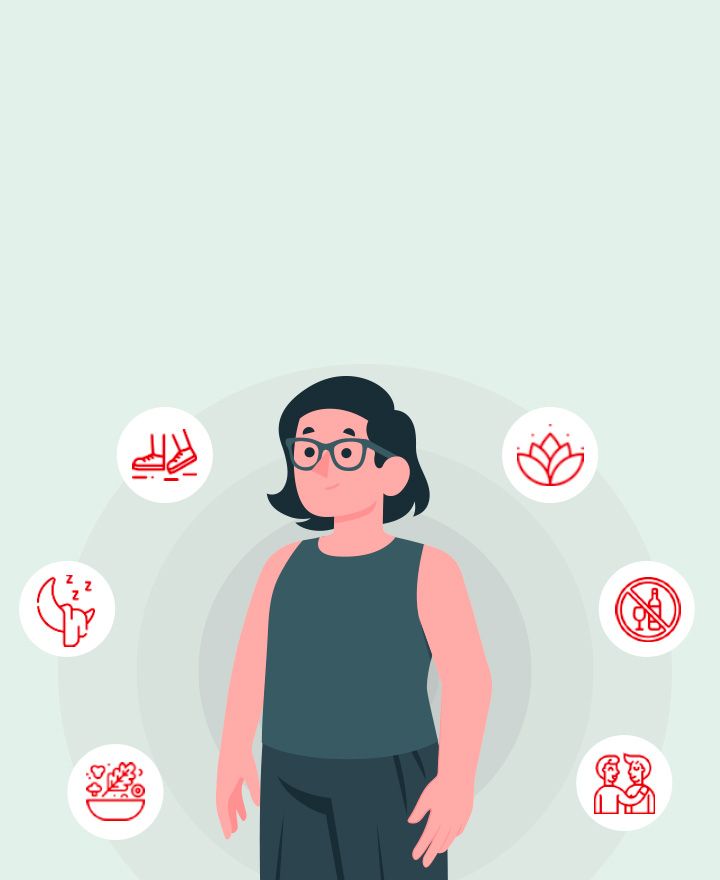

Ways To Take Care of Eyes in Monsoon
Monsoon eye care is essential for maintaining optimal eye health during the rainy season. This blog talks about common eye problems you can experience during rainy season and the eye care routine you must follow to enjoy the monsoons without compromising their eye health. Read on to know more.
Common Eye Problems and Their Causes
The monsoon season often triggers several eye-related issues, such as —
• Conjunctivitis (Pink Eye):
Caused by bacterial or viral infections, conjunctivitis often spreads through contaminated water.
• Styes:
These painful bumps on the eyelid occur due to blocked oil glands.
• Dry Eyes:
Despite increased humidity, air conditioning can contribute to dry eye discomfort.
• Fungal Infections:
The damp environment promotes fungal growth, potentially affecting the eyes.
• Allergic Reactions:
Increased pollen and mould spores in the air can trigger allergic responses.
Understanding these common problems helps in taking preventive measures.
Eye Hygiene Practices for Monsoon
Maintaining good eye hygiene is crucial during the monsoon season. You can easily do so by following these tips —
• Wash hands frequently:
This prevents the spread of infections to the eyes.
• Avoid touching eyes:
Prevent the transfer of germs by refraining from touching your eyes with unwashed hands.
• Gentle drying:
Use clean, soft towels to gently pat the eye area dry after exposure to rain.
• Eye makeup hygiene:
Replace eye makeup regularly and avoid sharing cosmetics.
• Contact lens care:
Ensure proper cleaning and storage of contact lenses.
• Lubricating eye drops:
Use these eye drops when experiencing dryness, but avoid overuse.
These practices form a strong defence against monsoon-related eye problems.
Protection from Environmental Factors
To shield your eyes from the rainy season, you can do the following —
• Wear sunglasses or protective eyewear:
Protect your eyes from rain, wind, and debris.
• Use an umbrella:
Keep rain away from your face and eyes.
• Avoid contaminated water:
Refrain from swimming in potentially polluted waterbodies.
• Close windows:
Prevent water splashes and airborne particles from entering your eyes during heavy rain.
• Maintain good ventilation:
Reduce humidity and mould growth indoors.
• Stay hydrated:
Adequate hydration supports overall eye health.
These measures create a protective shield for your eyes and help you achieve the perfect monsoon eye care.
FAQs
1. How often should I wash my hands for proper eye hygiene?
Wash your hands frequently, particularly before touching your face or eyes.
2. Can I wear contact lenses during the monsoon season?
Yes, but ensure proper cleaning and storage. Consider wearing glasses on particularly rainy days.
3. Are there specific foods that can boost eye health during the monsoon?
A balanced diet rich in vitamins A, C, and E supports overall eye health.
4. How can I tell if I have an eye infection?
Common signs include redness, itching, watery discharge, and discomfort.
5. Is it safe to use eye drops during the monsoon season?
Lubricating eye drops can be used for dryness, but avoid overuse. Consult an ophthalmologist for persistent discomfort and worsening of symptoms.
Conclusion
Monsoon eye care is essential for maintaining optimal vision during the rainy season. By understanding common eye problems, practising good hygiene, and shielding your eyes from environmental factors, you can enjoy the monsoon without compromising your eye health. You must consult an eye care professional if you experience persistent eye issues.
One of the important components of our overall wellness is also being financially secured. Healthcare emergencies can happen any time, but a good health insurance policy can protect you from such uncertain situations. To know more about Wellness and other health related tips, visit the wellness corner.
Source: savesightcentre.com, indiatimes.com, healthshots.com, thehealthsite.com, hindustantimes.com
Disclaimer: This blog provides general information and discussions about health and related subjects. The information and other content provided in this blog, website or in any linked materials are not intended and should not be considered, or used as a substitute for, medical advice, diagnosis or treatment. Kindly contact your Doctor before starting a new medicine or health regime.
Related Articles
Best Monsoon Season Fruits You Should Eat
Monsoon Skin Issues- Common Problems & Solutions
How to Safely Eat Raw Vegetables in Monsoon
10 Simple Ways to Take Care of Your Eyes
Best Home Remedies - Improving Eyesight Naturally
Published on November 18, 2024














 Car Insurance
Car Insurance  Bike/Two Wheeler Insurance
Bike/Two Wheeler Insurance  Health Insurance
Health Insurance  Pet Insurance
Pet Insurance
 Travel Insurance
Travel Insurance  Home Insurance
Home Insurance  Cyber Insurance
Cyber Insurance  Third Party Vehicle Ins.
Third Party Vehicle Ins.  Tractor Insurance
Tractor Insurance  Goods Carrying Vehicle Ins.
Goods Carrying Vehicle Ins.  Passenger Carrying Vehicle Ins.
Passenger Carrying Vehicle Ins.  Compulsory Personal Accident Insurance
Compulsory Personal Accident Insurance  Travel Insurance
Travel Insurance  Rural
Rural  Critical illness Insurance
Critical illness Insurance